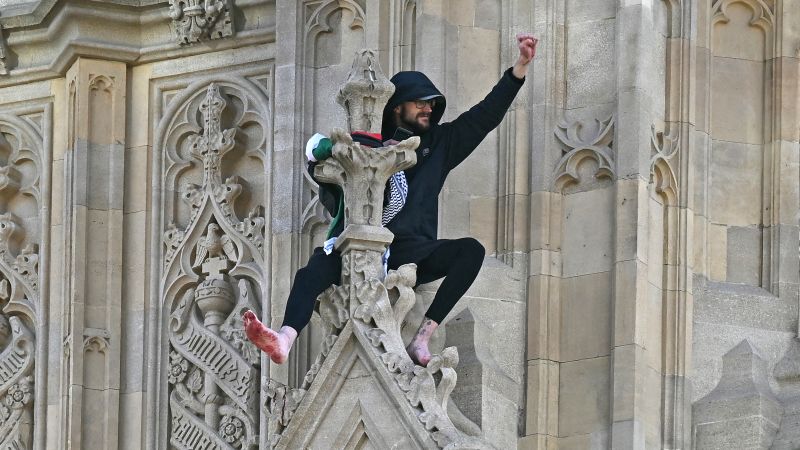CNN
—
As the US Department of Justice gears up to try to indict the man who allegedly plotted to shoot Donald Trump while he was golfing, a federal prosecutor said his team has been focused on one charge in particular: attempting to kill a major presidential candidate.
In court Monday, prosecutor Mark Dispoto told a judge that the Justice Department would pursue that charge under Section 351 of Title 18 of the United States Code. The charge carries a potential life sentence in federal prison.
Prosecutors have already charged Ryan Wesley Routh with two firearms offenses, and a federal magistrate judge on Monday ordered him detained pending further court proceedings. He has not yet entered a plea.
The attempted assassination charge is “pretty rare,” according to former FBI Deputy Director Andrew McCabe, a CNN senior law enforcement analyst. But it has been used in other high-profile attempted assassination cases, such as that of a man charged with traveling to Brett Kavanaugh’s Maryland home with a gun, burglary tools and other equipment in an apparent attempt on the Supreme Court justice’s life.
To prove their case, prosecutors would have to convince a jury that Routh took affirmative steps to carry out a plot to kill the former president. They would likely point to evidence already revealed in court, including a letter Routh allegedly wrote to “The World” that read, “This was an assassination attempt on Donald Trump but I failed you. I tried my best and gave it all the gumption I could muster. It is up to you now to finish the job; and I will offer $150,000 to whomever can complete the job.”
Former Justice Department national security prosecutor David Aaron told CNN that despite the revelations from prosecutors, the Justice Department could face challenges in convincing a jury that Routh had actually tried to kill Trump because he never fired a round.
“It’s not quite as black and white as some other cases,” Aaron said, where “someone shoots at someone and misses.” Instead, prosecutors will have to convince a jury that Routh’s other alleged steps – acquiring and loading a rifle, knowing where Trump was going to be, concealing himself just outside the golf course, and lying in wait for several hours for his target to come into view – is enough to prove that he intended to follow through on an assassination.
“If you’ve taken a shot and missed, that’s a much better case, a much easier case,” McCabe said, adding that prosecutors “don’t have any solid evidence of the attempt because they don’t have that shot.”
“What they have is circumstantial evidence,” he said. “You can convict someone on circumstantial evidence, but if that’s your path, you want a lot of it. You want to bury that jury in like every little thing this guy did that can only be interpreted one way.”
The federal statue also has a provision that, should the charge be brought, could automatically preempt a Florida state case into Routh. That subsection says state investigators and prosecutors “shall suspend the exercise of jurisdiction … until Federal action is terminated.” It is not exactly clear how that provision would apply in the case, Aaron said, adding that state and federal authorities often work together during investigations.
Florida Gov. Ron DeSantis said last week that the state “will be conducting its own investigation regarding the attempted assassination at Trump International Golf Club.” Routh has not been charged in state court.
Should Routh be convicted of the federal charge, he could face up to life in prison – though any sentence would be subject to the trial judge assigned to his case.
McCabe said a decision from prosecutors to use the weighty charge is important, both because of the serious sentencing it could result in and the “symbolic significance” of bringing what amounts to an attempted murder charge against someone accused of seeking to kill the former president and current Republican presidential candidate.
“I think that that perception of what they’re doing is a factor and something that [prosecutors and investigators] are trying to manage,” McCabe said. “I mean, they’re going to bring the best case they can. They’re not going to charge a guy with something if they think they can’t prove it, but I think charging it as an attempted attempt at assassination is important.”
CNN’s Holmes Lybrand contributed to this report.












